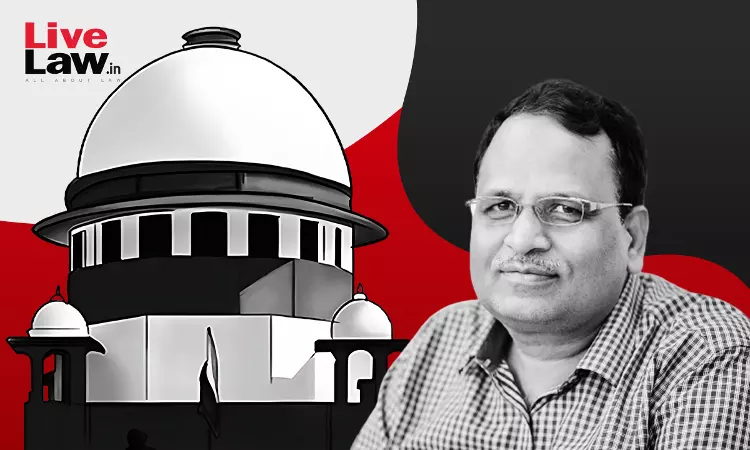AAP Leader Satyendar Jain Prima Facie Guilty Of Money Laundering, ED Collected Sufficient Materials: Supreme Court
Awstika Das
19 March 2024 11:08 AM IST

Next Story
19 March 2024 11:08 AM IST
In a significant development, the Supreme Court on Monday (March 18) observed that Aam Aadmi Party (AAP) leader Satyendar Jain, along with his aides Ankush Jain and Vaibhav Jain, are prima facie guilty of the alleged offences of money laundering.“Having regard to the totality of the facts and circumstances of the case, we are of the opinion that the appellants have miserably failed to...
